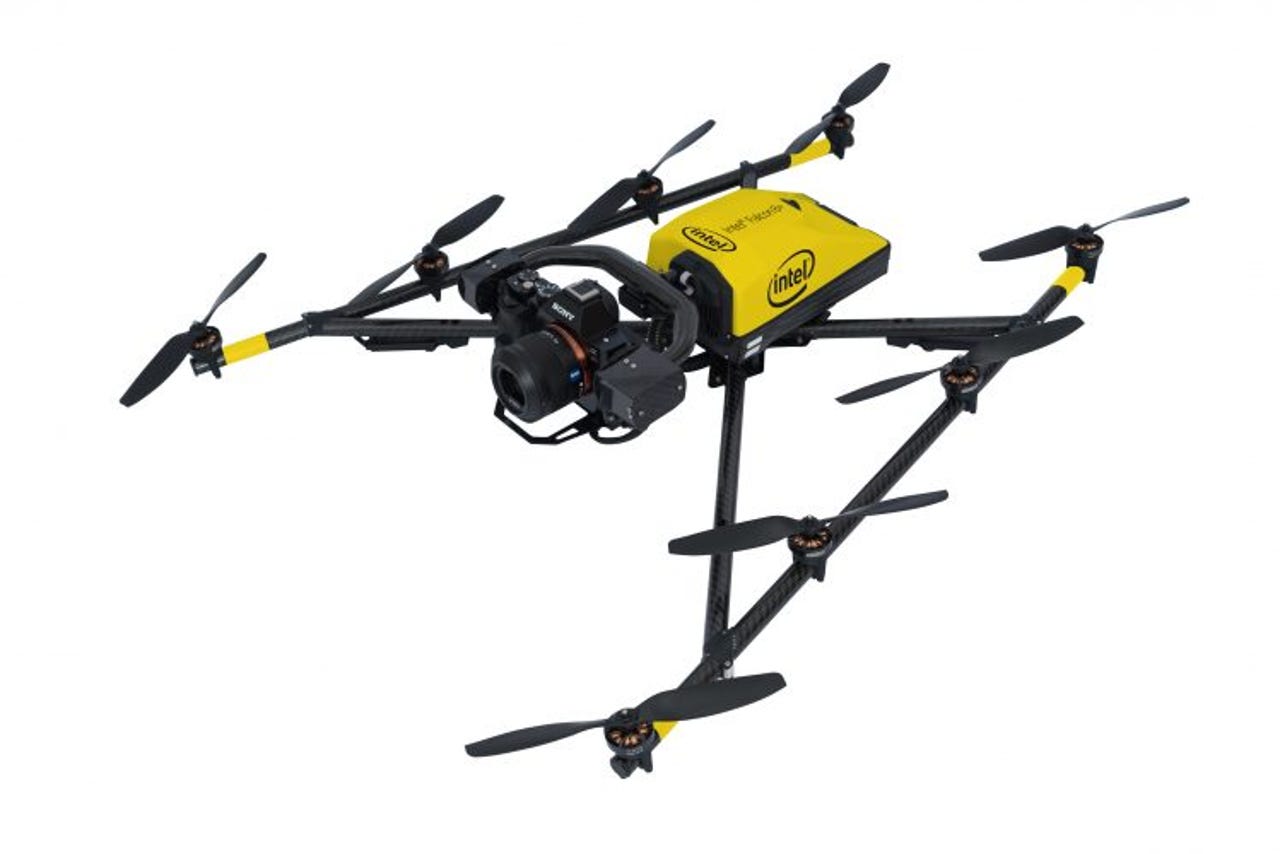Intel launches its first branded commercial drone


Intel's Falcon 8 drone.
Intel this week made a major play for the unmanned aerial vehicle (UAV) market with the launch of its first, Intel-branded commercial drone.
Featured
The Intel Falcon 8+ is a high-end V-form octocopter capable of reaching speeds of up to 35 miles per hour. The drone is controlled with a water-resistant cockpit outfitted with a joystick and tablet, and can fly for up to 26 minutes at a time on a redundant power pack.
Unlike hobbyist drones, the Falcon 8+ system is meant for a range of commercial applications including industrial inspection, surveying, and mapping. It also features the triple-redundant AscTec Trinity autopilot system, which Intel says can provide "detailed images down to millimeter accuracy, offering valuable structural analysis that detects and prevents damage to infrastructure."
The foundation for the Falcon 8+ is the German-made AscTec Falcon 8, which Intel now owns after acquiring Ascending Technologies in January. At the time, Intel said it bought the German drone maker for its auto-pilot software, algorithms, and sensors, which work in concert with Intel's 3D depth camera RealSense.
These technology components are now coming to life inside the Falcon 8+ to give Intel a boost in the booming drone market, which is estimated to have total addressable value of more than $127 billion, according to a report in May by PwC. The industrial drone space, which Intel is targeting with the Falcon, has an estimated value of more than $45 billion just in itself.
The thriving drone market prompted Intel's $60 million investment last year in Yuneec Aviation, a Hong Kong-based firm known for products including the single-seat electric E-Spyder aircraft and the Typhoon multi-copter series. It also spurred the chipmaker's September acquisition of Movidius, makers of specialized computer sensing and vision technology.
"Drones are an important computing platform for the future, and Intel is positioning itself at the forefront of this opportunity to provide the compute, sensor, communications, and cloud integration for the growing drone ecosystem," said Josh Walden, VP and GM of Intel's New Technology Group. "Intel is focused on continuing to create innovative new technologies and to lead in the unmanned aerial vehicle (UAV) segment -- especially in the commercial space."
Intel did not reveal pricing or availability details of the drone, but odds are it won't come cheap.